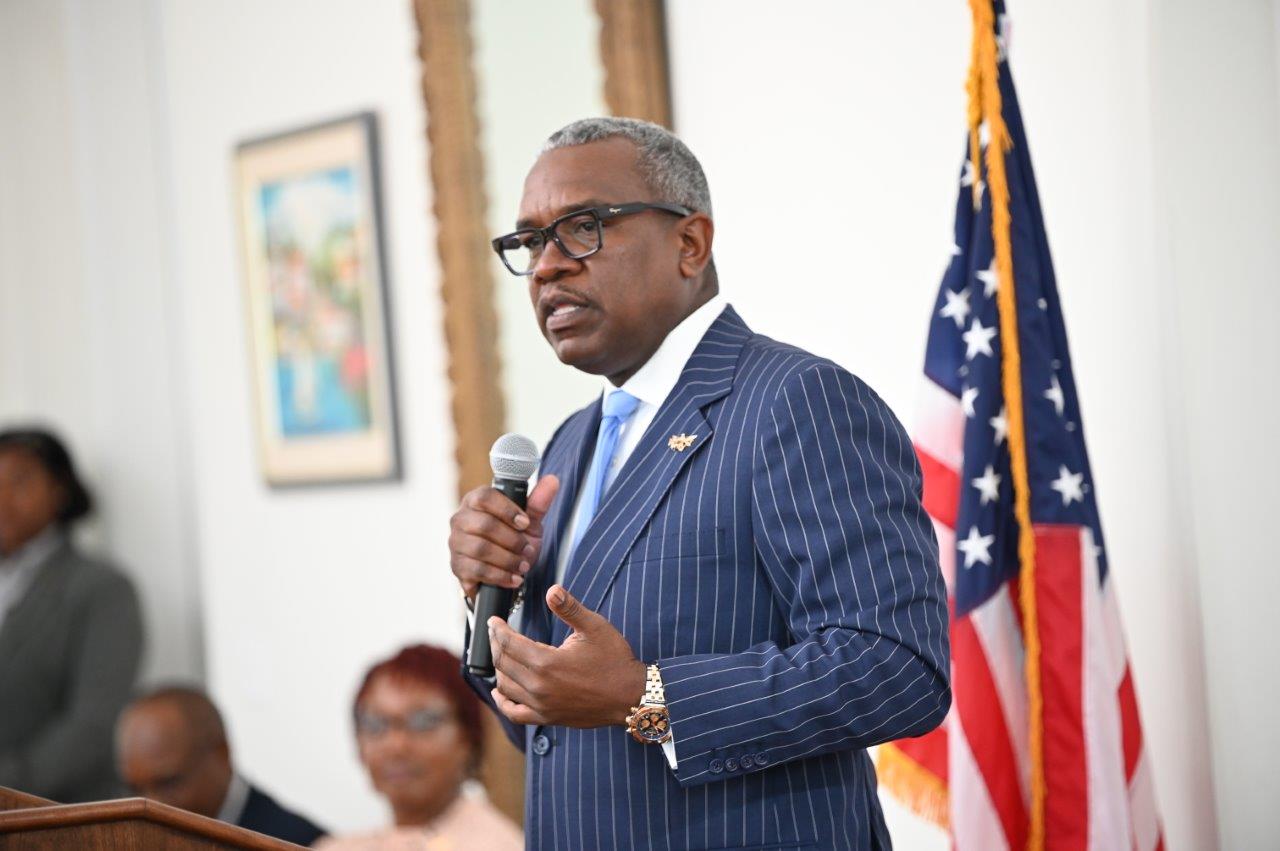
Questions about whether Gov. Albert Bryan Jr. attempted to ease travel reporting restrictions for convicted sex offender Jeffrey Epstein surfaced this week ahead of Bryan’s official submittal of a bill to strengthen local human trafficking laws and efforts to protect victims.
Bryan held a press conference in July to outline the main points of the bill, which, if passed by the Legislature and signed into law, would include mandatory reporting of suspected crimes by those considered likely to encounter trafficking victims. It would also create a reporting system through the 911 emergency call line and require registered sex offenders to inform Justice officials if they travel in the company of minors.
In a release Friday morning, Bryan reiterated that the proposal appropriates $11 million obtained from the sale of Little St. James to implement and support the prevention efforts.
The announcement comes after the filing this week of depositions given by former Attorneys General Denise George and Vincent Frazer, along with Attorney Carol Thomas-Jacobs, who filled in after George was fired in late December 2022. Partial transcripts of the depositions have been filed in U.S. District Court for the Southern District of New York, where the government continues to battle an ongoing lawsuit against JPMorgan.
During months of back and forth in discovery, both sides have claimed the other enabled Epstein to engage in illicit sex trafficking, but George’s most recent depositions, one on July 18 and another given two days later indicate Bryan approached more than once about reinstating a waiver granted by Frazer in 2012 that would have cut down Epstein’s reporting time before traveling from 21 days to 24-hours.
Asked in her deposition whether she found proof to reinstate the waiver, which had also been previously denied by Thomas-Jacobs, George said no.
“Based on what was in there, I saw nothing that convinced me that there, you know, nothing satisfied me with respect to that that would have warranted or justified any waiver,” according to the transcript filed on July 20. “So as it was, that’s why my decision was no, that I would not do it unless proof is shown. But nothing was shown there and I just had to make it clear that unless they show that, show proof and submit proof, I’m not going to even consider it, much less act favorably on the request irrespective — and I said I realized there was some political maneuvering that he was doing. Just the fact that he as a sex offender got the Governor to come to me for that request, which is unusual.”
George added in the deposition that it appeared Epstein was flexing his “political influence” by having the governor make the request rather than doing it himself.
“And so that’s what certainly just that alone raised that red flag,” George said in the deposition. “And then the subsequent reminder coming from the Governor… remind me that I have to make or I need to make a decision on Epstein, that also indicated to me definitely that they’re using that political influence or that there that there is or there exists some degree of political influence that Epstein is willing to use through the Governor.”


